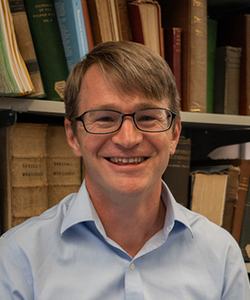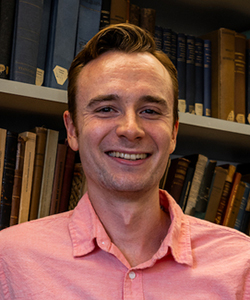Dynamics of Speech Production
Presenters: Jason Shaw, Michael Stern
BTFB1
Systems that change over time, from particles to climates to stock markets, are often well described as dynamical systems. Speech production involves coordinated movements of articulators (for example, the tongue and lips). These actions are generated and controlled by the nervous system and unfold over time according to laws, which can be formulated using dynamical systems theory. This workshop provides an introduction to the types of dynamical systems that have been proposed to describe and explain human speech production, including (1) articulatory kinematics, i.e., the movements of speech organs such as the tongue, lips, vocal folds, etc., and (2) neural activity governing intention and control of speech. Dynamical systems bridge traditional divides between phonology and phonetics. They provide a formal language for explicitly relating the continuous dimensions of speech production, i.e., a traditional domain of phonetics, to sound patterns described in terms of discrete categories, i.e., a traditional domain of phonology. At the end of this workshop, attendees will be able to relate the sound patterns of the world’s languages to the dynamics that give rise to them.
Keywords: Neurolinguistics, Production, Productivity, Computational Modeling, Phonetics, Phonology, Psycholinguistics, Typology, Theoretical Frameworks
Room STB 145, Tuesdays and Fridays, July 8-August 8, 10:30am - 11:50am
Tuesdays and Fridays
Presenters

Yale University
Jason A. Shaw is an Associate Professor in the Department of Linguistics at Yale University, Director of the Yale Phonetics Laboratory, and Associate Editor of Laboratory Phonology. He obtained his PhD in linguistics in 2010 from New York University. Before joining Yale in 2016, he did research in Australia supported by the Australian Research Council Discovery Early Career Research Award and in Japan supported by the Japan Society for the Promotion of Science and was a faculty member in linguistics at Western Sydney University. His research investigates how phonological form structures natural variation in speech and how this variation is interpreted by listeners. His approach combines language description with formal computational models and experimental methods that capture the temporal unfolding of speech planning, production, and perception. Experimental methods used in his research include eye-tracking in speech perception experiments and Electromagnetic Articulography (EMA) and ultrasound in speech production experiments.

Yale University
Michael C. Stern is a PhD candidate in the Department of Linguistics at Yale University and a research assistant at Haskins Laboratories. Before coming to Yale, he obtained his MA in linguistics from The Graduate Center, CUNY, where he worked as a research assistant in the Second Language Acquisition Lab. His research uses experiments and mathematical modeling to understand the relationship between mental (phonological, psycholinguistic) and physical (phonetic, neurolinguistic) descriptions of language. He is particularly interested in dynamical systems approaches to language and cognition, like Articulatory Phonology and Dynamic Field Theory.
Room STB 145, Tuesdays and Fridays, July 8-August 8, 10:30am - 11:50am
Tuesdays and Fridays
